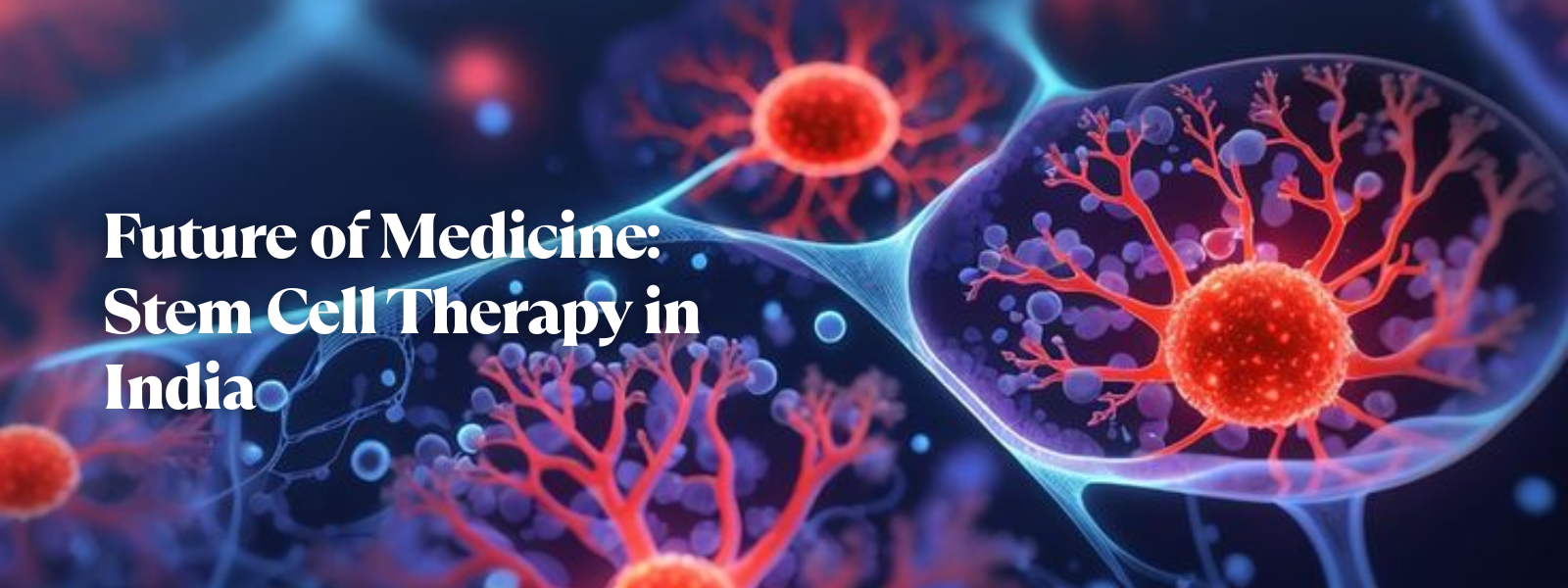Medicine is on the brink of a transformation, with innovative treatments changing how we approach chronic illnesses, injuries, and degenerative diseases. Among the most revolutionary advancements is Stem Cell Therapy In India, a promising frontier in regenerative medicine that offers new hope to patients where conventional methods fall short.
Imagine a world where damaged tissues and organs can be repaired from within—Stem Cell Therapy is turning that vision into reality.
What is Stem Cell Therapy?
Stem cell therapy utilizes undifferentiated cells that can develop into specialized cell types—enabling regeneration of damaged tissues or organs. This groundbreaking treatment is already making strides in orthopedics, neurology, cardiology, and even aesthetic medicine.
In the context of global healthcare advancements, Stem Cell Therapy In India has made notable progress, offering affordable, accessible, and scientifically advanced treatment options to both domestic and international patients.
Why Stem Cell Therapy is the Future of Medicine
Game-Changer in Chronic Disease Management
Stem cell therapy has demonstrated enormous promise in the treatment of:
- Neurological disorders: Parkinson’s disease, spinal cord injuries, and multiple sclerosis
- Orthopedic conditions: Osteoarthritis, cartilage damage, and tendon injuries
- Autoimmune diseases: Lupus and rheumatoid arthritis
- Cardiovascular diseases: Heart failure and peripheral artery disease
Personalized Medicine on the Rise
The therapy is tailored to each patient, reducing the risk of rejection and increasing efficacy:
- Autologous cells: Sourced from the patient’s own body
- Allogenic cells: Donated stem cells used under controlled protocols
Minimally Invasive and Low Downtime
Unlike traditional surgeries, stem cell procedures:
- Are often conducted through injections or minor interventions
- Require minimal hospital stays
- Offer quicker recovery times
Hurdles and Ethical Concerns
While the potential is exciting, the field is not without challenges.
Scientific and Medical Concerns
- Unproven claims: Not all clinics follow ethical or scientific practices
- Long-term effects: Still under clinical trials in many diseases
- Standardization: Lack of uniform global protocols
Ethical Dilemmas
- Embryonic stem cells: Use raises questions about the moral status of embryos
- Informed consent: Ensuring patients understand risks and realities
India is addressing these issues with stronger regulatory frameworks under the Indian Council of Medical Research (ICMR), ensuring safety and efficacy.
The Growth of Stem Cell Therapy in India
India is becoming a major international center for stem cell therapy and research. Here’s why:
Advantages of Pursuing Treatment in India
- World-class expertise: Top-tier scientists and physicians
- Cost-effective: Up to 70% less than in the US or Europe
- Medical tourism: International patients seek affordable and quality care
- Advanced infrastructure: Accredited labs and hospitals offering latest technology
Government and Institutional Support
- Initiatives by ICMR and DBT (Department of Biotechnology)
- Expansion of GMP-compliant stem cell labs
- Clinical trials and academic research through AIIMS, CMC Vellore, and others
Common Applications of Stem Cell Therapy
Orthopedic Treatments
- Osteoarthritis
- Sports injuries
- Bone regeneration
Neurological Disorders
- Stroke recovery
- Spinal cord injuries
- Autism and cerebral palsy (experimental)
Cardiac and Vascular Diseases
- Ischemic cardiomyopathy
- Peripheral vascular disease
Cosmetic and Anti-Aging Therapies
- Skin rejuvenation
- Hair loss treatments
- Scar repair
Why India Stands Out
- Internationally trained doctors and scientists
- High-quality facilities at lower costs
- A growing reputation in medical tourism
- English-speaking healthcare professionals
Many patients are choosing Stem Cell Therapy in India over Western countries for its affordability, shorter wait times, and high standards of care.
The Future Ahead: Research and Global Integration
India’s contribution to global stem cell research is rapidly growing, with increasing collaborations with universities in the US, Europe, and Japan. Clinical trials are exploring potential treatments for:
- Alzheimer’s and ALS
- Type 1 and Type 2 Diabetes
- Cancer therapy resistance
Artificial intelligence is also being integrated to improve stem cell processing, identification, and matching, making treatments more precise and effective.
Conclusion: Why Stem Cell Therapy in India is a Medical Revolution
Stem Cell Therapy In India is not just a breakthrough—it is a revolution. With its potential to treat conditions once deemed irreversible, backed by emerging technologies and expanding infrastructure, the therapy stands at the frontier of modern medicine. As research progresses and regulations tighten, India is poised to become a global leader in this field, offering hope and healing to millions.
FAQs
Yes, stem cell therapy is legal under the regulatory framework of the Indian Council of Medical Research (ICMR). Only approved clinics and trials are allowed to offer treatment.
Costs vary depending on the condition and treatment plan, typically ranging from ₹1.5 lakh to ₹10 lakh, making it more affordable than in Western countries.
Side effects are minimal when performed under expert supervision, but some patients may experience pain, swelling, or temporary fatigue post-injection.
Yes, many Indian hospitals cater to international patients, offering tailored packages, visa support, and follow-up care.


